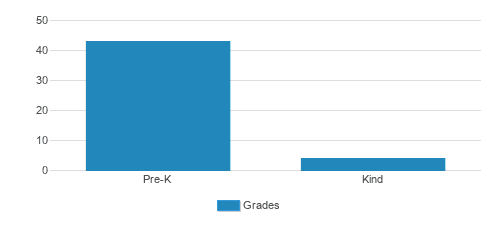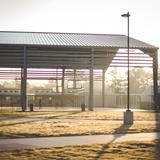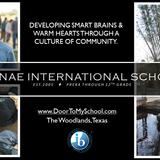Progressive Montessori School Offers a variety of program choices for you and your child.
Booth the toddler class and the pre-primary class are composed of mixed age groupings.
Children learn from others as well as the materials and the teacher.
Freedom within limits describes an environment where children are free to choose their work, and working at their own individual pace completing the task in an appropriate manner.
School Overview
Student Body
Total Students
53 students
Student Body Type
Co-ed
Students by Grade

Academics and Faculty
Total Classroom Teachers
11 teachers
Student : Teacher Ratio
5:1
National avg.: 13:1
Tuition and Acceptance Rate
Admission Deadline
None / Rolling
Source: National Center for Education Statistics (NCES)
Frequently Asked Questions
When is the application deadline for Progressive Montessori School?
The application deadline for Progressive Montessori School is rolling (applications are reviewed as they are received year-round).
Recent Articles

A Parent's Guide To Understanding High School Teaching Methods
This comprehensive guide helps parents navigate the various teaching methods used in today's high school classrooms. By understanding these approaches, you'll be better equipped to support your teen's learning journey, communicate effectively with teachers, and create a complementary learning environment at home.

February 08, 2025
Social Emotional Learning: Education's Hidden SymphonyA musician's perspective on Social Emotional Learning reveals how this educational framework orchestrates success through five essential emotional competencies.

January 24, 2025
A Roadmap For Starting A Private SchoolUse this roadmap as a set of talking points with your trusted mentors and professionals to start the private school of your dreams. You're not alone. Over the years, hundreds of folks like you have had the same dream. From Quintilian to Maria Montessori to Lucy Madeira Wing, visionary educators have established schools to teach according to their beliefs and methodologies.
















